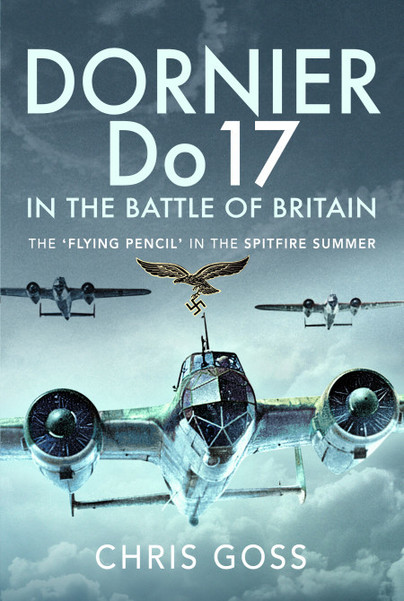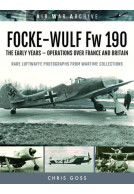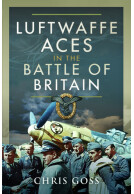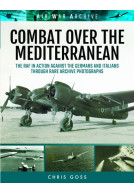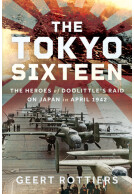Dornier Do 17 in the Battle of Britain (Hardback)
The 'Flying Pencil' in the Spitfire Summer
Imprint: Air World
Pages: 232
Illustrations: 200 b/w illustrations
ISBN: 9781526781208
Published: 16th January 2023
(click here for international delivery rates)
Order within the next 10 hours, 29 minutes to get your order processed the next working day!
Need a currency converter? Check XE.com for live rates
| Other formats available - Buy the Hardback and get the eBook for £1.99! | Price |
|---|---|
| Dornier Do 17 in the Battle of… ePub (202.9 MB) Add to Basket | £6.99 |
During Britain’s desperate struggle for survival that in the summer of 1940, the Dornier Do 17 played a prominent part in raids designed at neutralising the RAF’s ability to resist and the British people’s will to fight back. Having been built to outrun contemporary fighters when introduced into the Luftwaffe in 1937, it had become the Luftwaffe’s main light bomber, and for the attack against Britain, three bomber wings, KG 2, KG3 and KG77, were equipped with the Do 17. But by 1940, the Do 17 was nearing obsolescence and, with its weak defensive armament, it fell prey to Fighter Command’s Hurricanes and Spitfires.
Its vulnerability was starkly revealed on 18 August 1940, when eight Dorniers were shot down and nine damaged in attacks on RAF Kenley, and on 15 September – Battle of Britain Day – when twenty were shot down and a further thirteen damaged. On that day, Sergeant Ray Holmes rammed his Hurricane into a Do 17 that was reportedly aiming for Buckingham Palace. Part of the bomber’s wreckage fell to earth near Victoria Station.
In this comprehensive pictorial record of the Do 17, the bomber’s role throughout the period of the Battle of Britain is displayed in the author’s unique collection of British and German photographs. These photographs, coupled with first-hand stories from those who flew and those who fought against the Do 17, bring those desperate days and dark nights back to life in the manner which only contemporary images and accounts can achieve.
"The excellent paper shows the photographs in detail. Most of the photographs have captions of 60-100 words that contain excellent detail."
The Journal of the Air Force Historical Foundation
This book contains a wealth of inspiring images that can be used to create a fantastic diorama. With the first-hand accounts that bring the imagery to life, it is a must-have for anyone who models World War II German aircraft.
Vintage Airfix
A fascinating and memorable read. A highly recommended book.
Read the full review here
Featured in
The Armourer - June 2023
As featured
Wings Museum Website
As featured on Army Rumour Service
Army Rumour Service (ARRSE)
As Featured In
Model Aircraft Monthly, December 2021
About Chris Goss
After a 32-year career in the RAF and three years working for a civilian company as its Head of Operations, Chris Goss is now a full-time aviation author and military historian. He is the author of over 50 critically acclaimed books covering aspects of the World War II air war over North- West Europe. He is a historical consultant for a number of major projects, such as the recovery of the Dornier 17 by the RAF Museum and Commonwealth War Graves Commission, and for TV channels such as The History Channel and Channel 5's The Battle of Britain: 3 Days that Saved a Nation.
Dornier Do 217 From Bomber to Night-Fighter: Rare Wartime Photographs (Hardback)
Entering service in early 1941, the Dornier Do 217 was designed as an improved version of the ‘Flying Pencil’, the Do 17 bomber. The Do 217E-1 twin radial-engine bomber first flew in October 1940, the same month that the production of the Do 17 ceased. The Do 217 was initially used for conventional bombing and anti-shipping missions around the United Kingdom, including the infamous Baedeker Blitz against British provincial cities in 1942. The Do 217 was the main German bomber in this theatre until late 1943, when it started to be replaced by the Messerschmitt Me 410 and Junkers Ju 188. During…
By Chris GossClick here to buy both titles for £45.00







